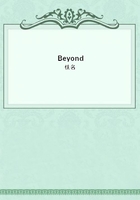
第98章
"I'm always glad to see her when she takes a run down in a car.
But I've come here for quiet after the life I've led, and I don't want to think about it, especially before you, ma'am. I don't--that's a fact."
A silence followed, during which Mr. and Mrs. Wagge looked at their feet, and Gyp looked at the dog.
"Ah!--here you are!" It was Winton, who had come up from behind the shelter, and stood, with eyebrows slightly raised. Gyp could not help a smile. Her father's weathered, narrow face, half-veiled eyes, thin nose, little crisp, grey moustache that did not hide his firm lips, his lean, erect figure, the very way he stood, his thin, dry, clipped voice were the absolute antithesis of Mr. Wagge's thickset, stoutly planted form, thick-skinned, thick-featured face, thick, rather hoarse yet oily voice. It was as if Providence had arranged a demonstration of the extremes of social type. And she said:
"Mr. and Mrs. Wagge--my father."
Winton raised his hat. Gyp remained seated, the dog Duckie being still on her feet.
"'Appy to meet you, sir. I hope you have benefit from the waters.
They're supposed to be most powerful, I believe.""Thank you--not more deadly than most. Are you drinking them?"Mr. Wagge smiled.
"Nao!" he said, "we live here."
"Indeed! Do you find anything to do?"
"Well, as a fact, I've come here for rest. But I take a Turkish bath once a fortnight--find it refreshing; keeps the pores of the skin acting."Mrs. Wagge added gently:
"It seems to suit my husband wonderfully."
Winton murmured:
"Yes. Is this your dog? Bit of a philosopher, isn't he?"Mrs. Wagge answered:
"Oh, he's a naughty dog, aren't you, Duckie?"The dog Duckie, feeling himself the cynosure of every eye, rose and stood panting into Gyp's face. She took the occasion to get up.
"We must go, I'm afraid. Good-bye. It's been very nice to meet you again. When you see Daisy, will you please give her my love?"Mrs. Wagge unexpectedly took a handkerchief from her reticule. Mr.
Wagge cleared his throat heavily. Gyp was conscious of the dog Duckie waddling after them, and of Mrs. Wagge calling, "Duckie, Duckie!" from behind her handkerchief.
Winton said softly:
"So those two got that pretty filly! Well, she didn't show much quality, when you come to think of it. She's still with our friend, according to your aunt."Gyp nodded.
"Yes; and I do hope she's happy."
"HE isn't, apparently. Serves him right."
Gyp shook her head.
"Oh no, Dad!"
"Well, one oughtn't to wish any man worse than he's likely to get.
But when I see people daring to look down their noses at you--by Jove! I get--""Darling, what does that matter?"
Winton answered testily:
"It matters very much to me--the impudence of it!" His mouth relaxed in a grim little smile: "Ah, well--there's not much to choose between us so far as condemning our neighbours goes.
'Charity Stakes--also ran, Charles Clare Winton, the Church, and Mrs. Grundy.'"They opened out to each other more in those few days at Tunbridge Wells than they had for years. Whether the process of bathing softened his crust, or the air that Mr. Wagge found "a bit--er--too irony, as you might say," had upon Winton the opposite effect, he certainly relaxed that first duty of man, the concealment of his spirit, and disclosed his activities as he never had before--how such and such a person had been set on his feet, so and so sent out to Canada, this man's wife helped over her confinement, that man's daughter started again after a slip. And Gyp's child-worship of him bloomed anew.
On the last afternoon of their stay, she strolled out with him through one of the long woods that stretched away behind their hotel. Excited by the coming end of her self-inflicted penance, moved by the beauty among those sunlit trees, she found it difficult to talk. But Winton, about to lose her, was quite loquacious. Starting from the sinister change in the racing-world--so plutocratic now, with the American seat, the increase of bookmaking owners, and other tragic occurrences--he launched forth into a jeremiad on the condition of things in general. Parliament, he thought, especially now that members were paid, had lost its self-respect; the towns had eaten up the country; hunting was threatened; the power and vulgarity of the press were appalling;women had lost their heads; and everybody seemed afraid of having any "breeding." By the time little Gyp was Gyp's age, they would all be under the thumb of Watch Committees, live in Garden Cities, and have to account for every half-crown they spent, and every half-hour of their time; the horse, too, would be an extinct animal, brought out once a year at the lord-mayor's show. He hoped--the deuce--he might not be alive to see it. And suddenly he added: "What do you think happens after death, Gyp?"They were sitting on one of those benches that crop up suddenly in the heart of nature. All around them briars and bracken were just on the turn; and the hum of flies, the vague stir of leaves and life formed but a single sound. Gyp, gazing into the wood, answered:
"Nothing, Dad. I think we just go back."
"Ah-- My idea, too!"
Neither of them had ever known what the other thought about it before!
Gyp murmured:
"La vie est vaine--
Un peu d'amour, Un peu de haine, Et puis bonjour!"Not quite a grunt or quite a laugh emerged from the depths of Winton, and, looking up at the sky, he said:
"And what they call 'God,' after all, what is it? Just the very best you can get out of yourself--nothing more, so far as I can see. Dash it, you can't imagine anything more than you can imagine. One would like to die in the open, though, like Whyte-Melville. But there's one thing that's always puzzled me, Gyp.